TMJ Sleep Disorders
Learn about how TMJ can affect sleepTMJ sleep disorders
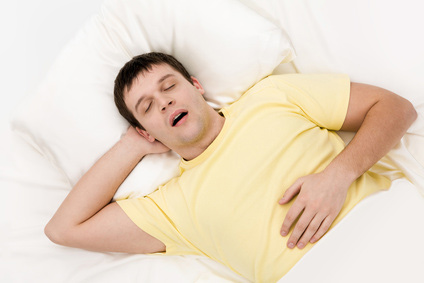 The TMJ (abbreviation for the temporomandibular joint) connects the jawbone to the skull. Located in front of the ears on each side of the head, the joint is cushioned by a soft disk that allows it to move smoothly. Disorders of the TMJ can lead to a variety of problems, some of which might not seem to have anything to do with the jaw.
The TMJ (abbreviation for the temporomandibular joint) connects the jawbone to the skull. Located in front of the ears on each side of the head, the joint is cushioned by a soft disk that allows it to move smoothly. Disorders of the TMJ can lead to a variety of problems, some of which might not seem to have anything to do with the jaw.
Symptoms of TMJ disorder include:
Do I have TMJ Disorder?
Symptoms include migraines, neck pain, jaw pain, lower back pain, snoring, sleep apnea. Use our Free TMJ Disorder Assessment ToolsTMJ can be related to sleep problems
The connection between TMJ and sleep disorder is often overlooked, but it has been evidenced in research.
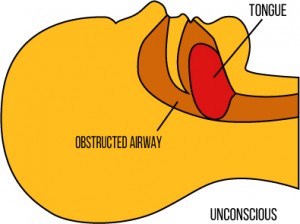 TMJ problems can be affected by sleep position, breathing patterns, and other factors that happen when we sleep, which can make it difficult for an individual to realize that anything is wrong – until they wake up with a headache, dizziness, or feeling tired. Problems in your jaw may be the last thing you’d associate with sleep problems, but the evidence of the connection is overwhelming.
TMJ problems can be affected by sleep position, breathing patterns, and other factors that happen when we sleep, which can make it difficult for an individual to realize that anything is wrong – until they wake up with a headache, dizziness, or feeling tired. Problems in your jaw may be the last thing you’d associate with sleep problems, but the evidence of the connection is overwhelming.
A 2009 study on sleep disorders and TMJ disorders concluded that people who have TMJ disorder should be referred to sleep specialists because of the likelihood that they suffer from a sleep disorder. TMJ can cause snoring, and snoring is one of the primary symptoms of sleep apnea, a common sleep disorder in which the person literally stops breathing many times during their sleep. TMJ patients with sleep apnea could find greater relief by getting treatment for both of these issues.
Treatments for Sleep Apnea and TMJ Sleep Disorders
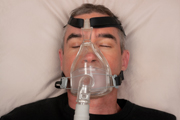 People who are diagnosed with sleep apnea usually sleep while using a CPAP, a forced air machine that requires wearing a device that fits over the nose and mouth. Other sleep apnea patients opt for an oral appliance that keeps the airway in the throat open during sleep.
People who are diagnosed with sleep apnea usually sleep while using a CPAP, a forced air machine that requires wearing a device that fits over the nose and mouth. Other sleep apnea patients opt for an oral appliance that keeps the airway in the throat open during sleep.
While some patients tolerate sleeping with these types of devices well, others find them cumbersome, particularly the CPAP device. Oral appliances are often successfully used by people who cannot tolerate a CPAP, but they generally only work in mild to moderate cases of sleep apnea.
It is recommended that treatment for TMJ disorder be conservative. Simple things that you can do yourself can help, such as sleeping on your side instead of on your back, avoiding gum chewing and avoiding cradling a phone when you talk. Invasive treatments, such as injections or procedures that change the structure or shape of the jaw, are generally only performed in cases that involve major facial trauma.
TMJ symptoms can affect anyone, children, and adults alike
The highest risk of TMJ disorders is in women between the ages of 20-40.
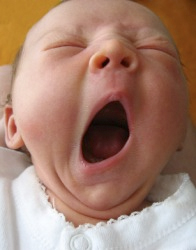 Anyone who is experiencing any of the symptoms of TMJ disorder, including headaches, especially those that are persistent; ear ache; neck pain or stiffness; sensitivity to light; loose or worn down teeth or tooth pain; facial pain; difficulty chewing; clicking sounds when chewing; locking jaws; or jaw pain or tenderness, might be able to find relief in TMJ treatment.
Anyone who is experiencing any of the symptoms of TMJ disorder, including headaches, especially those that are persistent; ear ache; neck pain or stiffness; sensitivity to light; loose or worn down teeth or tooth pain; facial pain; difficulty chewing; clicking sounds when chewing; locking jaws; or jaw pain or tenderness, might be able to find relief in TMJ treatment.
If you wake up feeling tired even though you’ve had plenty of sleep, wake up with a headache, or if you know you have sleep apnea, insomnia or other sleep problems, it is possible that a TMJ problem could be a contributing factor.
TMJ symptoms or sleep disorders can be best treated by someone with knowledge and experience in TMJ and how it relates to sleep and proper breathing. If you suffer from symptoms of TMJ or sleep disorder, or believe there may be a connection between your sleep and TMJ, contact our office for more information or to make a consultation appointment.

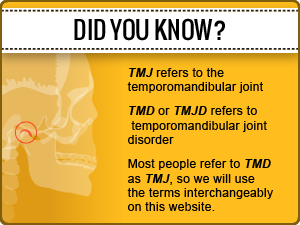
0 Comments